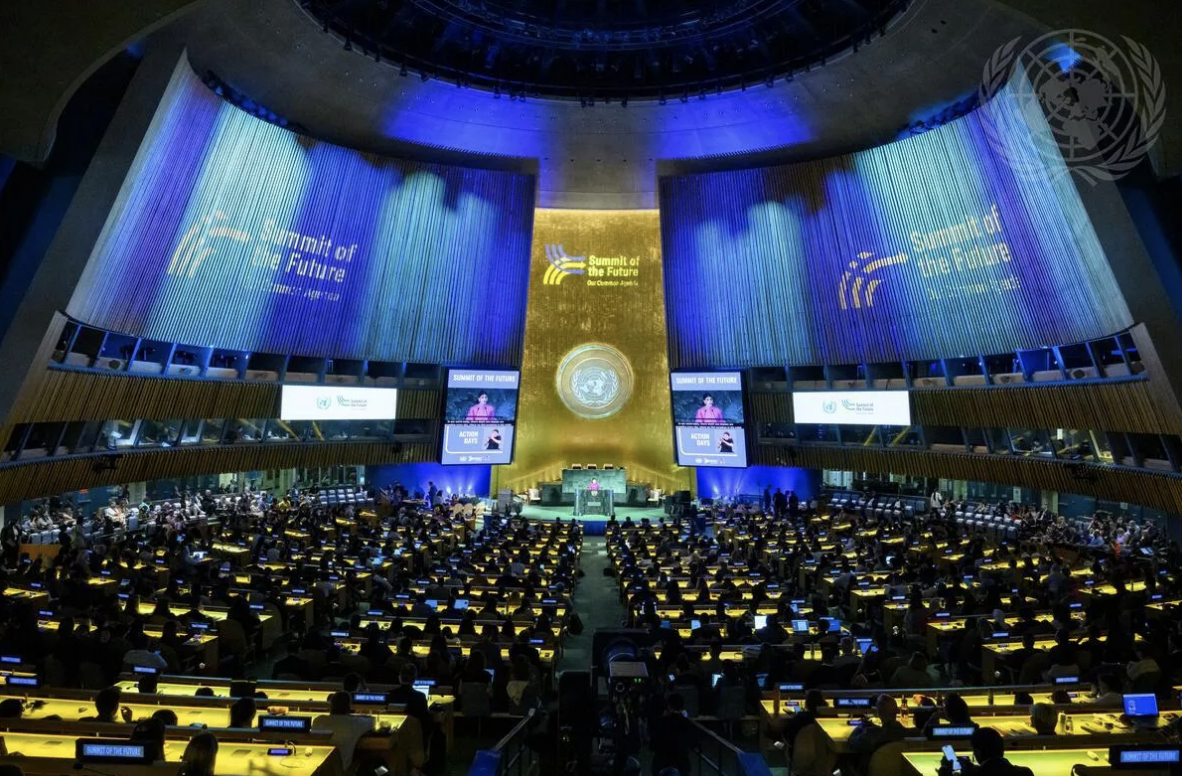News . Events UNITED NATIONS: SUMMIT OF THE FUTURE

by Dr. Alexandra Okada
The Pact for the Future document from the UN Summit of the Future (September 2024) outlines global commitments to support Agenda 2030, focusing on Sustainable Development Goals (SDGs) and education within a transformative framework. Particularly relevant to Open Schooling, it emphasizes inclusive, quality education (SDG 4) and lifelong learning as essential for sustainable development. The document encourages educational models that engage learners, experts, and communities to solve real-world problems aligned with SDGs, fostering equity, inclusion, and environmental responsibility.
Key actions related to Open Schooling include:
- Empowering Communities and Schools: By supporting local education systems and fostering partnerships with educators and societal leaders, the document promotes education that addresses local and global challenges (e.g., poverty, climate change).
- Lifelong Learning and Access to Resources: It emphasizes equitable access to learning resources, advocating for policies that enable broad participation in education, regardless of socio-economic background.
- Global Digital Inclusion: Through the Global Digital Compact, the document underscores the importance of digital access, especially for marginalized communities, enabling them to participate in Open Schooling initiatives and address SDGs collaboratively.
- Support for Innovation in Education: The Pact encourages integrating science, technology, and innovation into educational curricula, supporting problem-solving and critical thinking aligned with real-life SDG challenges.
Overall, the Pact envisions education as a means to empower individuals to contribute meaningfully to society and the environment, fostering a collaborative approach to achieving Agenda 2030 through accessible, equitable, and innovative educational practices.
Key Resources:
- Summit of the Future Official Website: Provides detailed information about the summit’s objectives, agenda, and outcomes.
- Pact for the Future Document: The official text of the pact adopted during the summit, outlining commitments and action plans across various domains.
- Summit Documents and Reports: A collection of official documents, including resolutions, letters, and reports related to the summit’s proceedings.
- Summit Programme: Details the schedule, sessions, and interactive dialogues that took place during the summit.
- Summit of the Future Action Days: Information about the preparatory events and activities leading up to the main summit, focusing on stakeholder engagement and thematic discussions.
- UN Web TV Coverage: Archived videos of the summit’s sessions, speeches, and discussions, providing visual insights into the event.